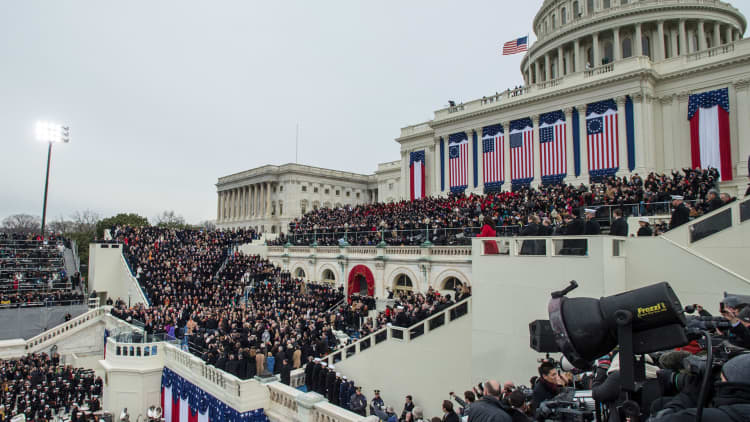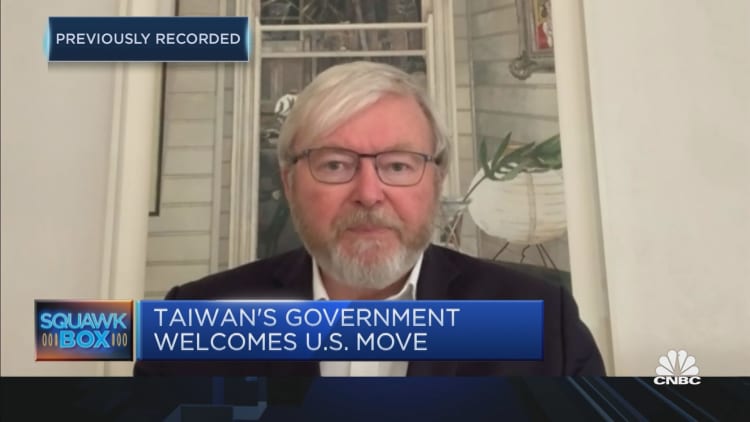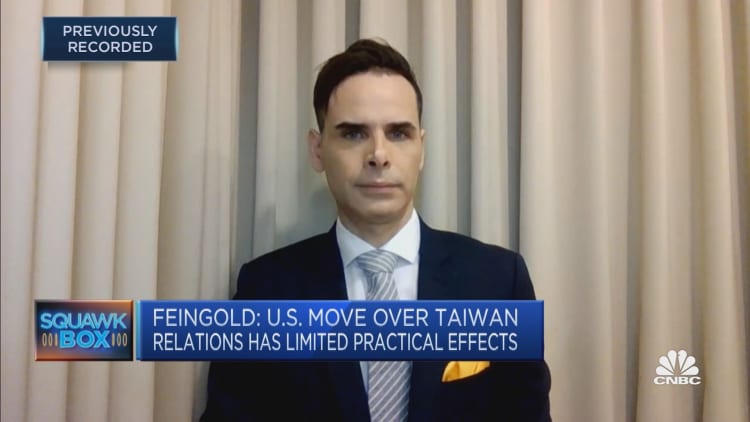U.S. President Joe Biden and his predecessor Donald Trump may disagree about many things, but China isn't one of them.
Biden's team has shown early signs that it agrees with the previous administration on several "extremely touchy" issues concerning China, an American public policy expert said on Thursday.
The "early signals" show that the Biden administration "may change the tone and tenor of the conversation with Beijing — but they're not really gonna change the policy," said Lanhee Chen, director of domestic policy studies and lecturer at Stanford University.
He pointed out that Antony Blinken, Biden's nominee for Secretary of State, said during his confirmation hearing this week that he agreed with the previous administration's assessment that China committed genocide against the minority Uighur Muslims.

Blinken also "made clear that the U.S. will not be abandoning Taiwan anytime soon," said Chen, who's also a research fellow at Stanford's Hoover Institution.
Washington has no formal diplomatic ties with Taiwan — which China claims as a runaway province that must eventually be reunited with the mainland. Still, the U.S. is Taiwan's most powerful international backer and largest arms supplier.
"These are two issues that for Beijing are extremely touchy," he told CNBC's "Squawk Box Asia."
In addition to Blinken, Avril Haines — who's been confirmed as director of national intelligence — also said during her confirmation hearing that the U.S. needs to counter China's growing aggression.
Here are comments made by Blinken and Haines that shed some light on how the Biden administration will view China.
Rise of China
U.S.-China relations worsened during Trump's term as the two countries engaged in a damaging trade war, competed on technology, and clashed over issues including human rights and the origins of Covid-19.
Blinken on Tuesday referred to China as "the most significant challenge of any nation state to the United States."
We have to start by approaching China from a position of strength, not weakness. And the good news is our ability to do that is largely within our control.Antony BlinkenNominee for U.S. Secretary of State
"Trump was right in taking a tougher approach to China," he said, but disagreed with the way the previous administration dealt with Beijing.
The U.S. is stronger when working with allies, as well as engaging with and leading international institutions, said Blinken, who reiterated a stance widely touted by Biden.
"We have to start by approaching China from a position of strength, not weakness. And the good news is our ability to do that is largely within our control," he said at his confirmation hearing.

Haines similarly said China is "adversarial and an adversary on some issues," and that the intelligence community should support long-term effort in the U.S. to "outcompete" China.
But both Blinken and Haines pointed out there are areas the U.S. and China can cooperate on — such as climate change.
Defending Taiwan
Taiwan, a democratic and self-ruled island, is among the issues at the center of a tense U.S.-China relations.
China has on several occasions slammed the Trump administration for deepening ties with Taiwan, which Beijing claims as a territory that has no right to conduct international diplomacy of its own. The Chinese Communist Party in Beijing has never governed Taiwan.
I'd like to see Taiwan even more engaged in the world.Antony BlinkenNominee for U.S. Secretary of State
During Trump's term, U.S. officials conducted high-level visits to the island. And earlier this month, former U.S. Secretary of State Mike Pompeo announced that Washington was lifting its self-imposed restrictions on U.S.-Taiwan relations. Those moves angered Beijing.
China has never renounced the use of force to bring Taiwan under its control. But Blinken warned it would be "a grievous mistake" on the part of Beijing to use military force against Taiwan, and the U.S. must make sure the island has the means to deter aggression and defend itself.

"I'd like to see Taiwan even more engaged in the world. It's in many ways a model of democracy, a strong economy, and a technological powerhouse. And of course, the way they've dealt with Covid-19 has a lot of lessons to teach us," he said.
Human rights
A day before leaving office, Pompeo said Tuesday that China has committed genocide against the Uighur people and other ethnic minorities in the western region of Xinjiang.
When asked if he agreed with Pompeo's statement, Blinken said: "That would be my judgment as well."
Human rights groups like Amnesty, and international organizations including the United Nations have accused China of holding more than 1 million Uighur Muslims and other minorities in detention camps, and subjecting detainees to torture and forced labor.
China has denied charges of forced labor and claimed that the camps are re-education camps to weed out extremism and teach people new job skills.
Blinken said the U.S. can start addressing the issue by making sure it's not importing products made by forced labor in Xinjiang — a move that some countries, including the U.K., have already made.


